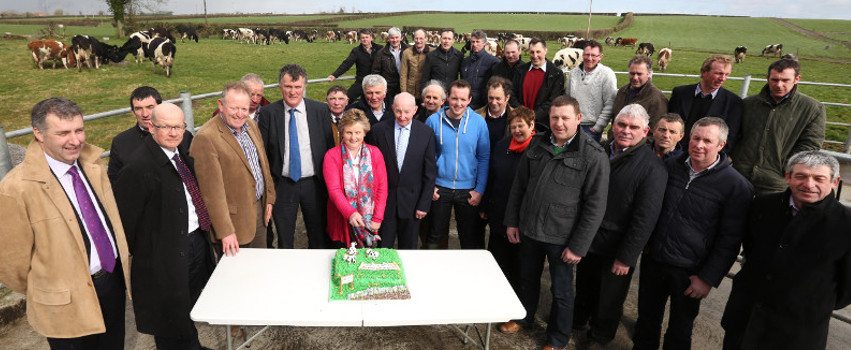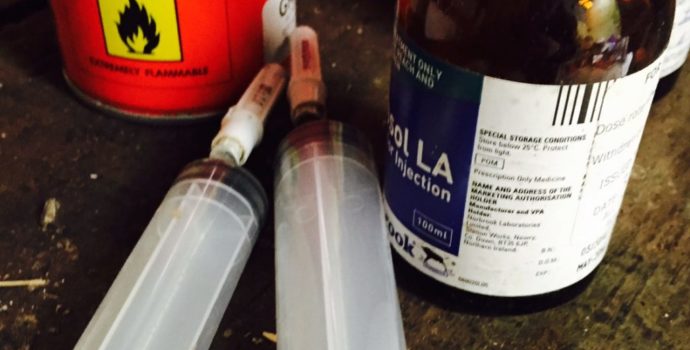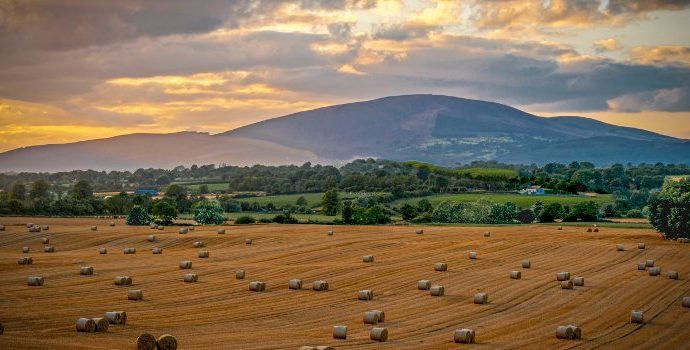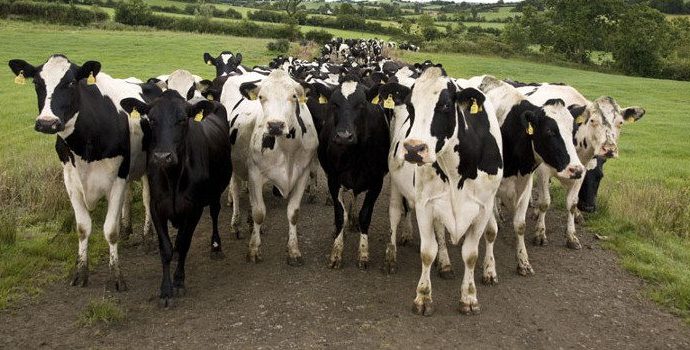Dairy Farmers Enthusiastic, but Realistic, as Milk Quotas End

IFA President Eddie Downey, in wishing farmers and the dairy sector well as quotas disappear after 30 years, said dairy farmers were right to be optimistic. He said there is a real opportunity to sustainably increase milk production, with world demand expected to grow significantly over the next few years.
However, he said the enthusiasm must be matched with good business planning and efficiency at farm level, with all players, including banks, advisory services and processors, doing everything possible to support farmers.
Eddie Downey said, “Based on the expansion in other parts of the world, Irish producers need to be particularly careful on the level of borrowing and additional business cost they take on as they expand”.
“IFA is acutely conscious of the many issues outside the farm gate that must be addressed to help the sector meet its potential. Key among them is an increase in farm profitability, which must be central to the 2025 Agri-Strategy. New taxation measures to address extreme market volatility and a clear focus by the Government to ensure that any future climate change targets do not inhibit the ability of the sector to grow are critical. In addition, it is vital that Government policies ensure a competitive business environment and that new premium markets for our produce are actively pursued”.
Mr Downey said recent comments highlighting environmental risks from dairy expansion are totally unfounded. Irish farmers have invested heavily in environmental measures on their farms and with modern farming practices, have shown that they can sustainably intensify production while protecting our high-quality waterways and bio-diversity.
Speaking at the IFA National Dairy Committee’s marking of the end of milk quotas on the farm of the 2014 NDC & Kerrygold Milk Quality Award winners, Edmond, Anne and Thomas Dwan, Chairman Sean O’Leary said Irish dairy farmers welcomed the opportunity to access fast-growing global markets which the end of quotas now afforded them. However, he said, contrary to the talk of bubble in the media in recent days, there was solid evidence that Irish dairy farmers would proceed cautiously in developing their business.
Sean O’Leary said, “Facts would suggest that Irish dairy farmers are well placed to capitalise on the end of quotas, and in so doing help develop the dairy and agribusiness sector with major increases in direct and indirect employment, which an IFA study estimated at 9,500 extra jobs, and upwards of €1.3bn annual additional export revenue”.
“According to research carried out by Ipsos MRBI for AIB Bank, and presented at our current series of dairy seminars, the average level of indebtedness of Irish dairy farms is €62,000. This compares with over €800,000 on the average Dutch farm, and €1.4m on the average Danish farm,” he said.
“The same study suggests that 63% of Irish dairy farmers are planning to grow their milk output by 2020, but of these, only 8% will increase production by more than a third. Expanding farmers intend to increase yields per cow (44%), improve grass management (14%) with no more than 45% planning to increase cow numbers. Hence, most farmers who plan to expand will proceed with moderate, cautious and sustainable growth,” he said.
“We farmers and our co-ops have been planning for the end of quotas for a number of years now. Co-ops like Glanbia, Dairygold, Kerry, Lakeland and others have made major investments in additional processing capacity. The Irish Dairy Board have identified new markets for existing and new products, and have already started establishing new routes to export markets for growing Irish milk supplies. Farmers have increased their young stock and invested in extending and improving their on-farm facilities,” Mr O’Leary said.
“Farmers are undoubtedly excited at the prospect of being able not only to grow their milk production, but also to better run their farms without the counter-productive management impositions quotas had created on them over the years. However, we have already for some time operated in a global market, increasingly influenced by weather factors, economic shocks and geopolitical events anywhere on the planet, which result in challenging volatile prices,” he added.
“Together with co-ops and other stakeholders, and with supportive taxation policies, I am quite confident that Irish dairy farmers will deliver fully on the Food Harvest 2020 targets for the greater good of the Irish rural economy,” he concluded.




